Abstract
Pigeons were trained on a series of reversals of a simultaneous form discrimination in which the trial outcomes were separated from the choice responses by an 8-s delay interval. Different conditions were defined by the stimuli occurring during the two halves of the delay interval. Discrimination learning was greatly facilitated by having differential stimuli during the delay following correct versus incorrect choices. When the differential stimuli appeared only at the midpoint of the delay, some facilitation occurred relative to when no different stimuli occurred, but there was substantially less facilitation than when the differential stimuli occurred immediately contingent on choice. A reversed-stimulus condition, in which the stimulus at the onset of the delay following a correct choice was the same as that during the last segment of the delay following an incorrect choice, and the stimulus at the onset of the delay following an incorrect choice was the same as that preceding food during the last segment of the delay following a correct choice, also facilitated discrimination learning relative to the nondifferential stimulus conditions.
Keywords: conditioned reinforcement, delay of reinforcement, discrimination, reversal learning, conditional discrimination, stimulus segmentation, key peck, pigeons
Full text
PDF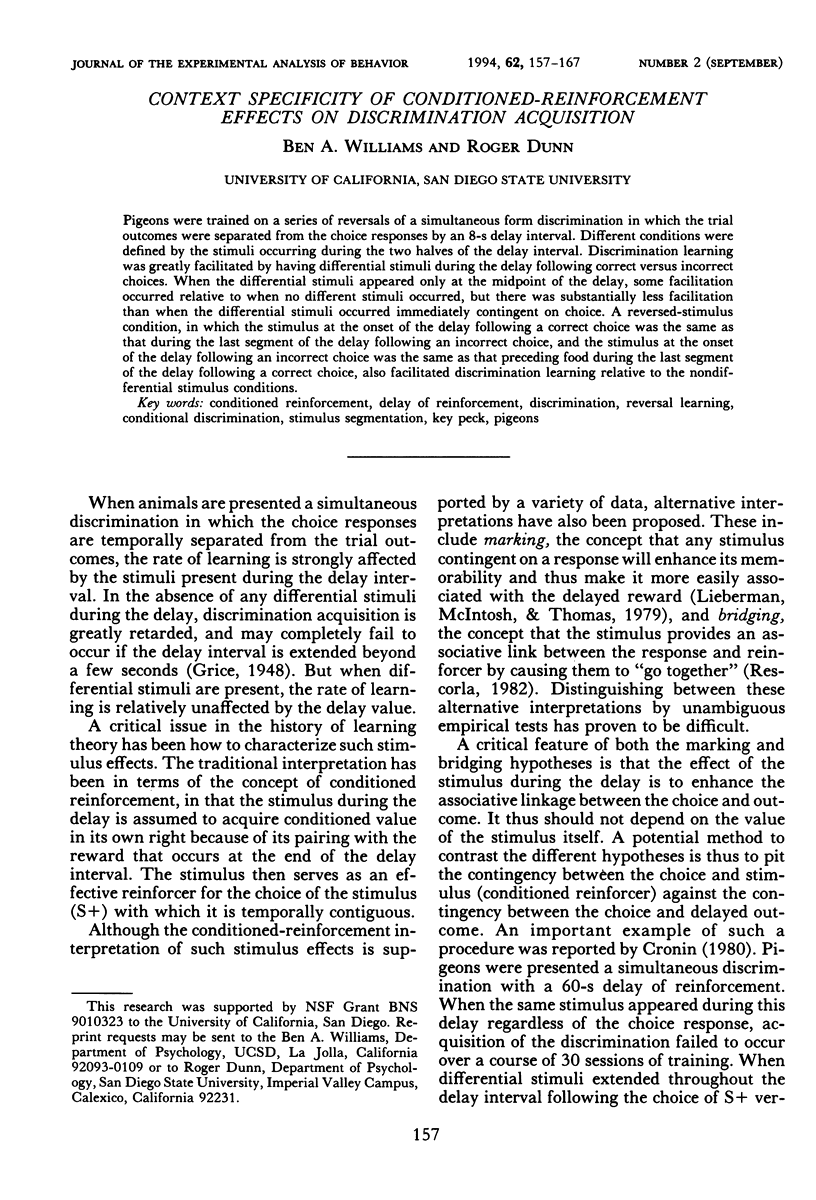
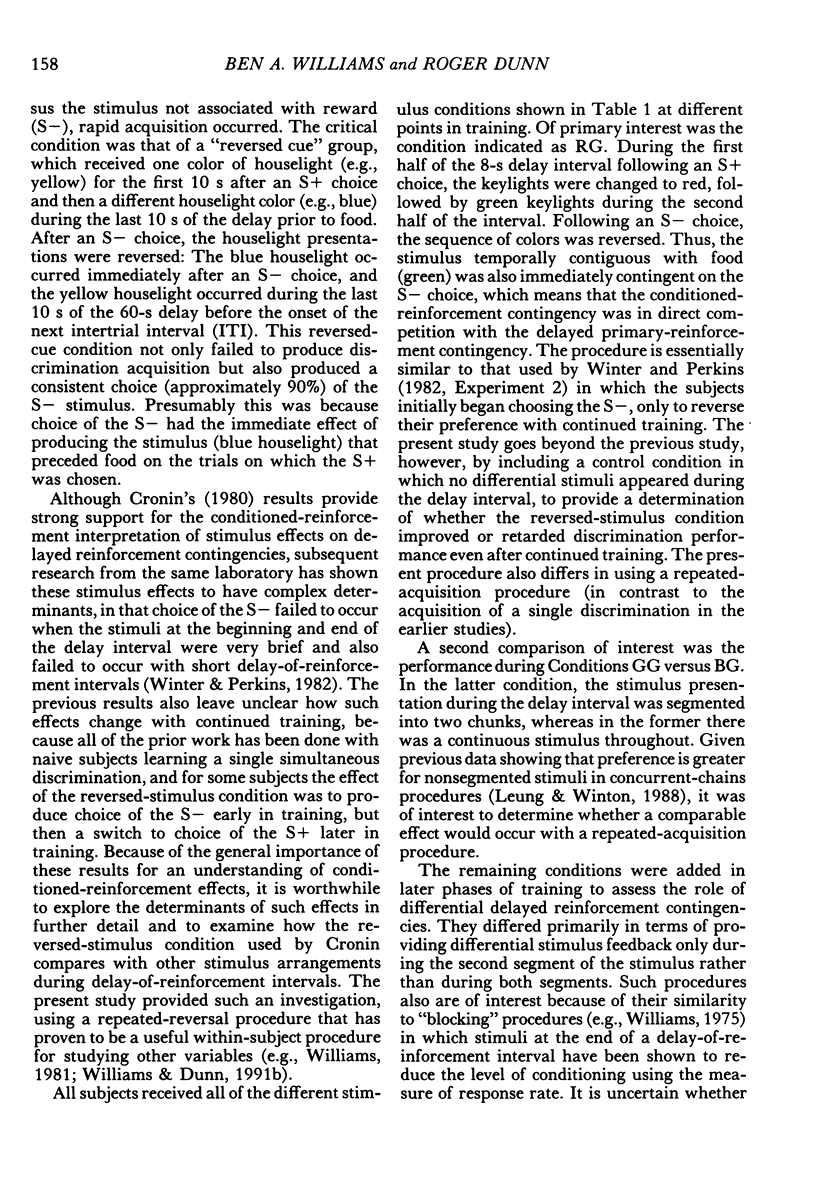
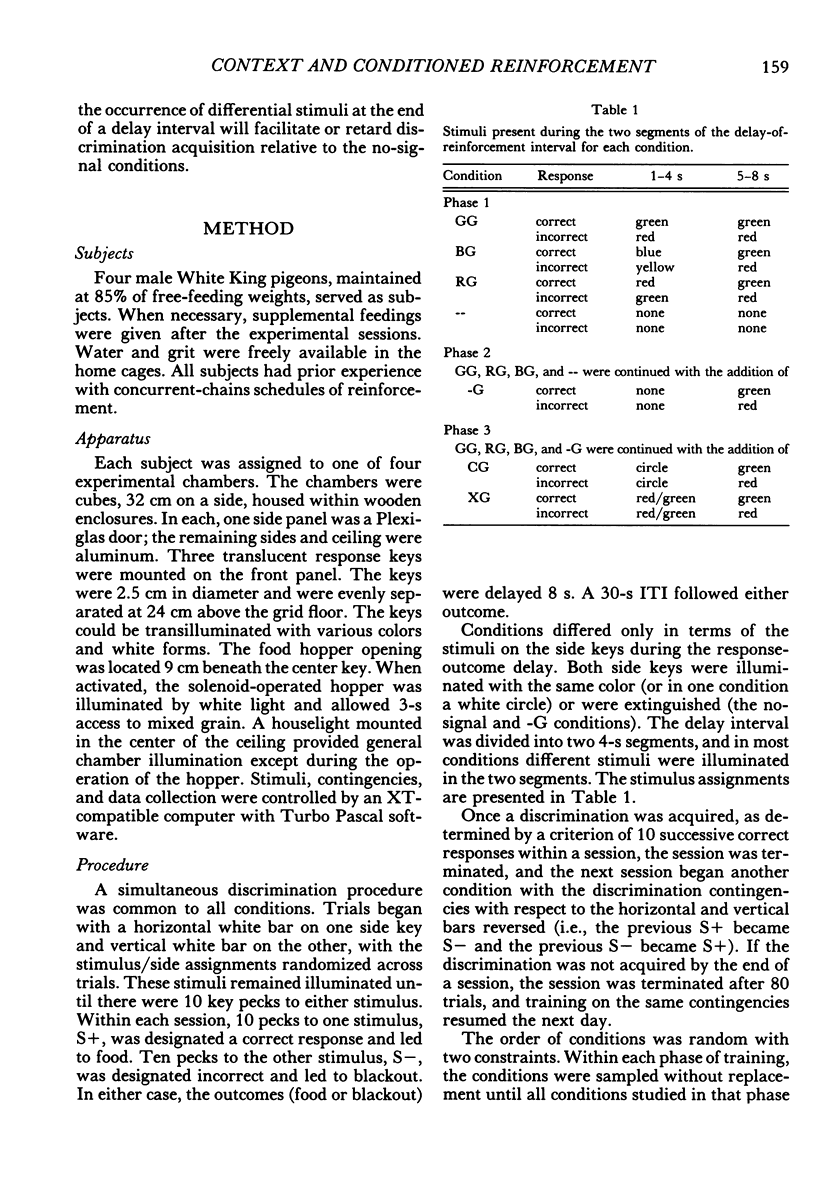
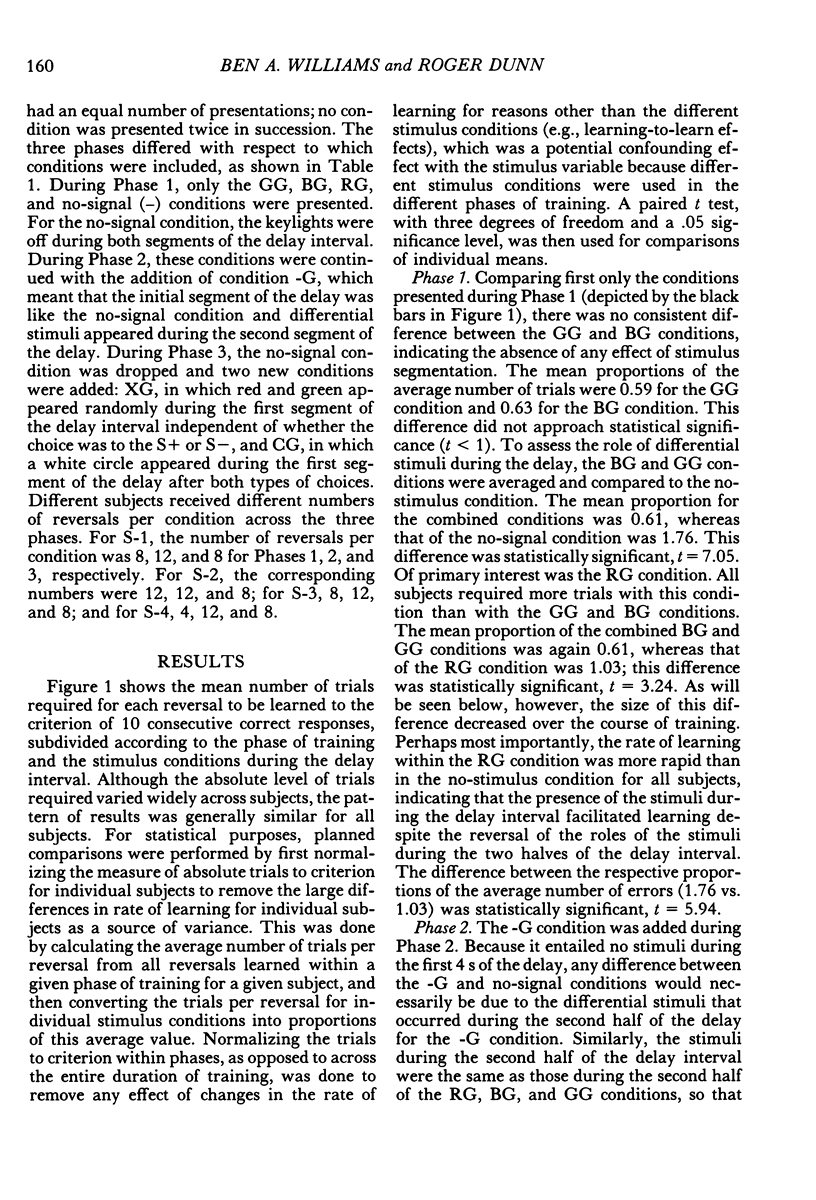
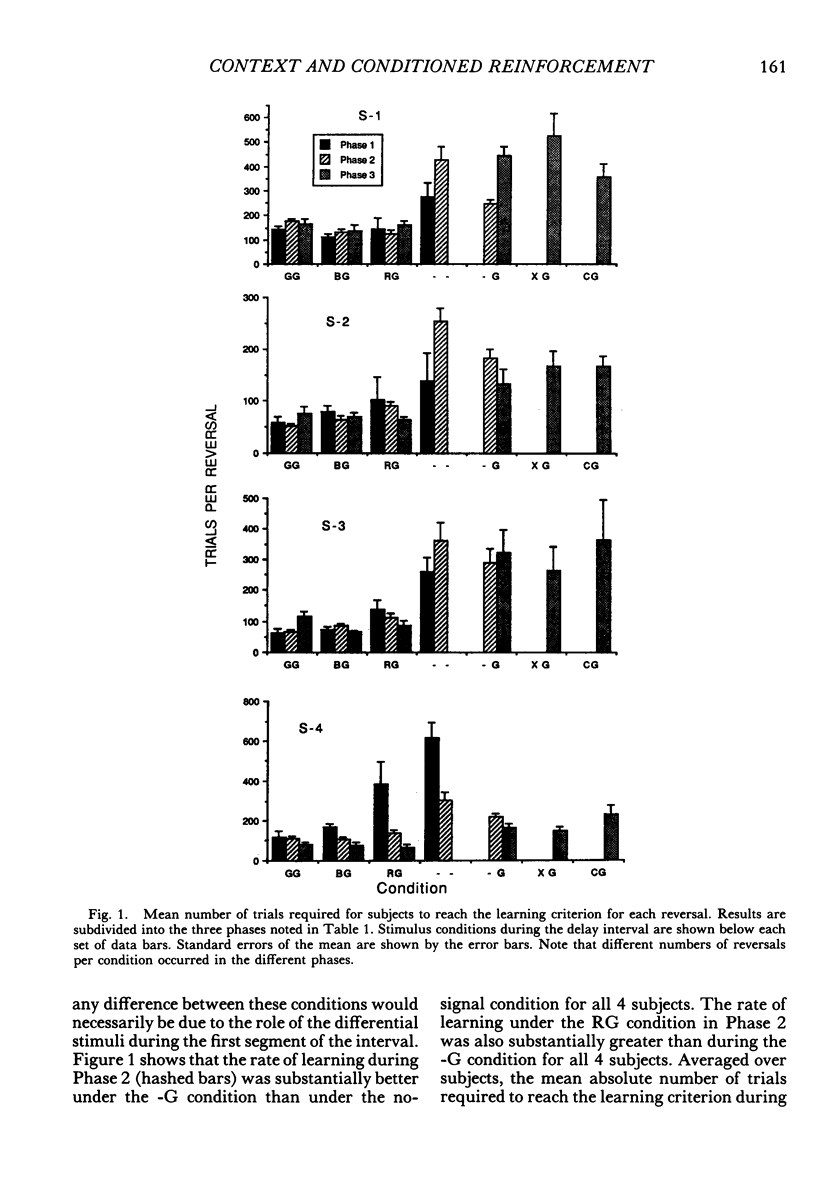
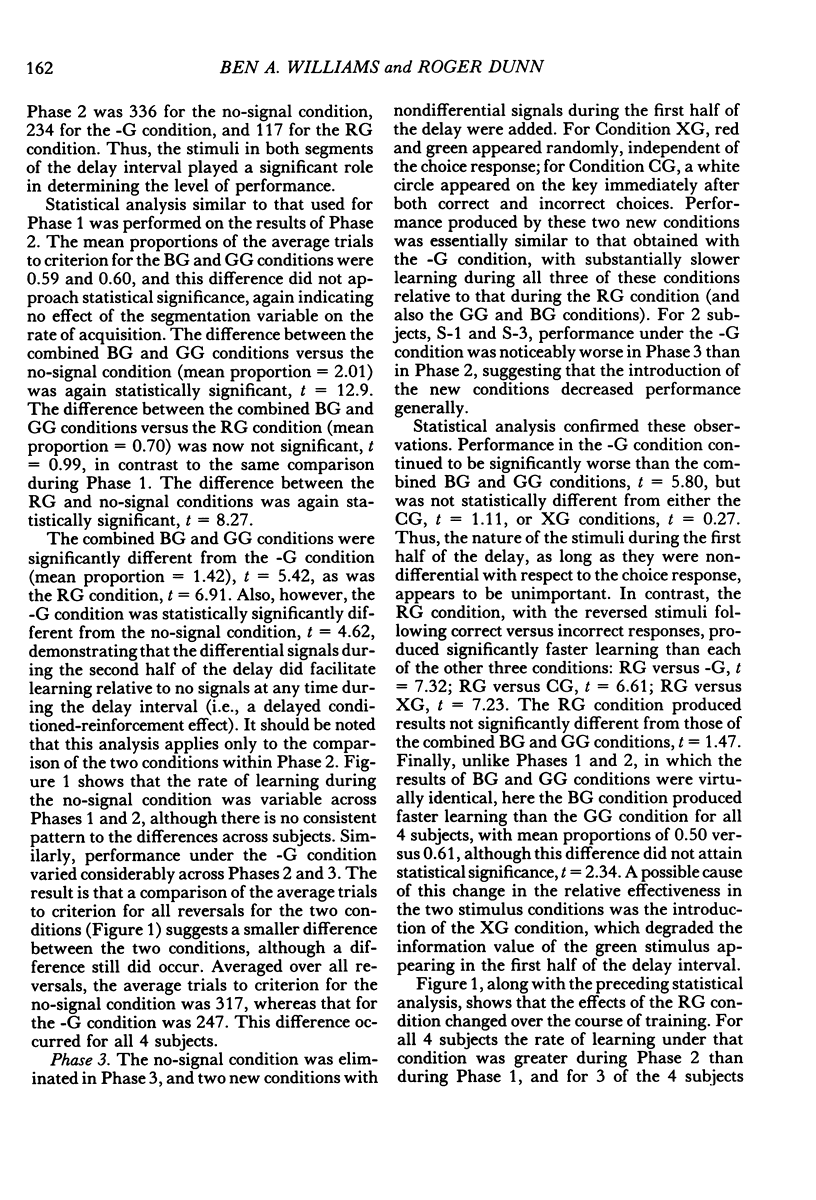
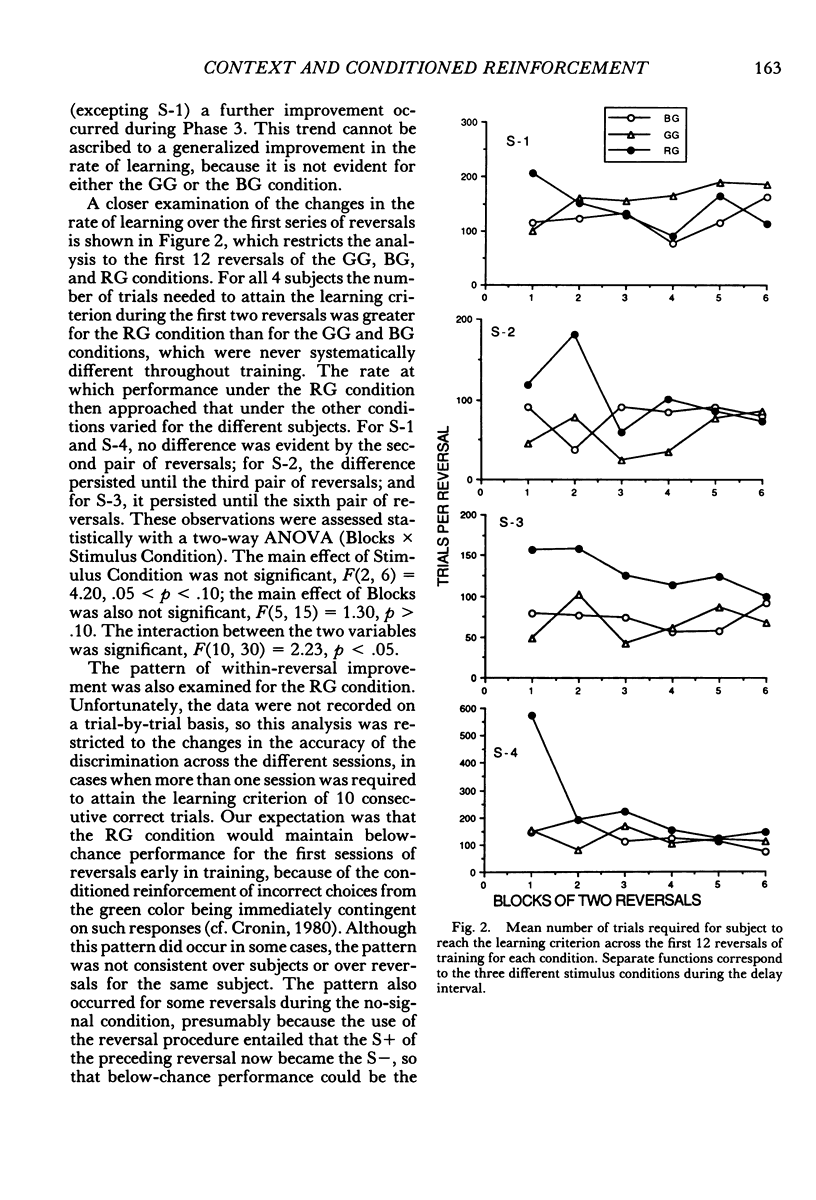
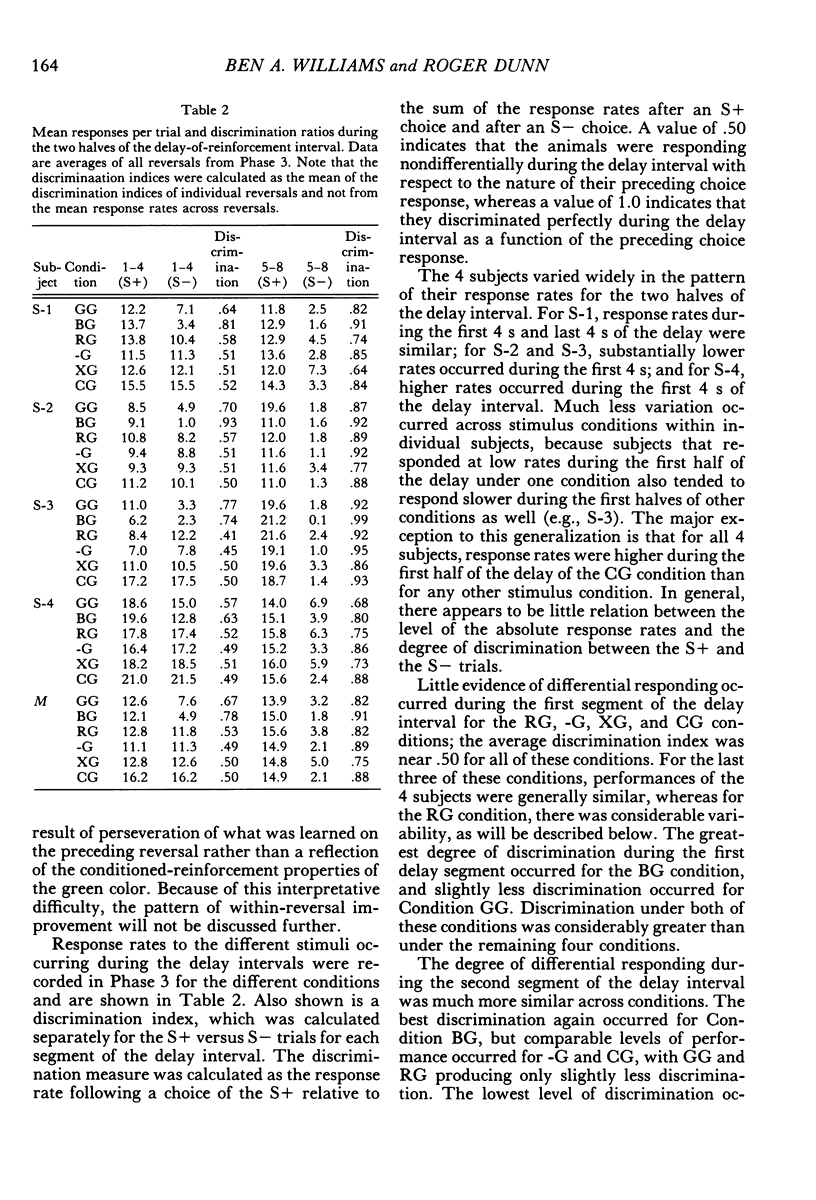
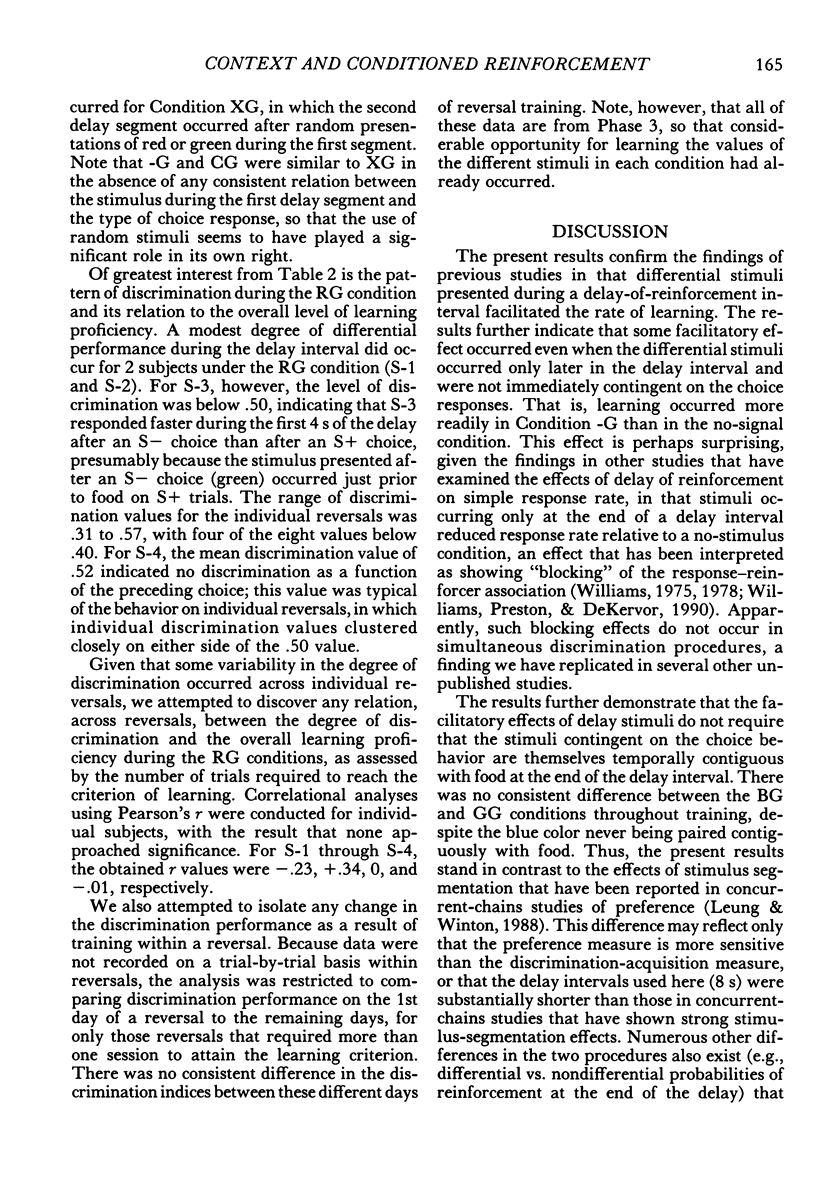
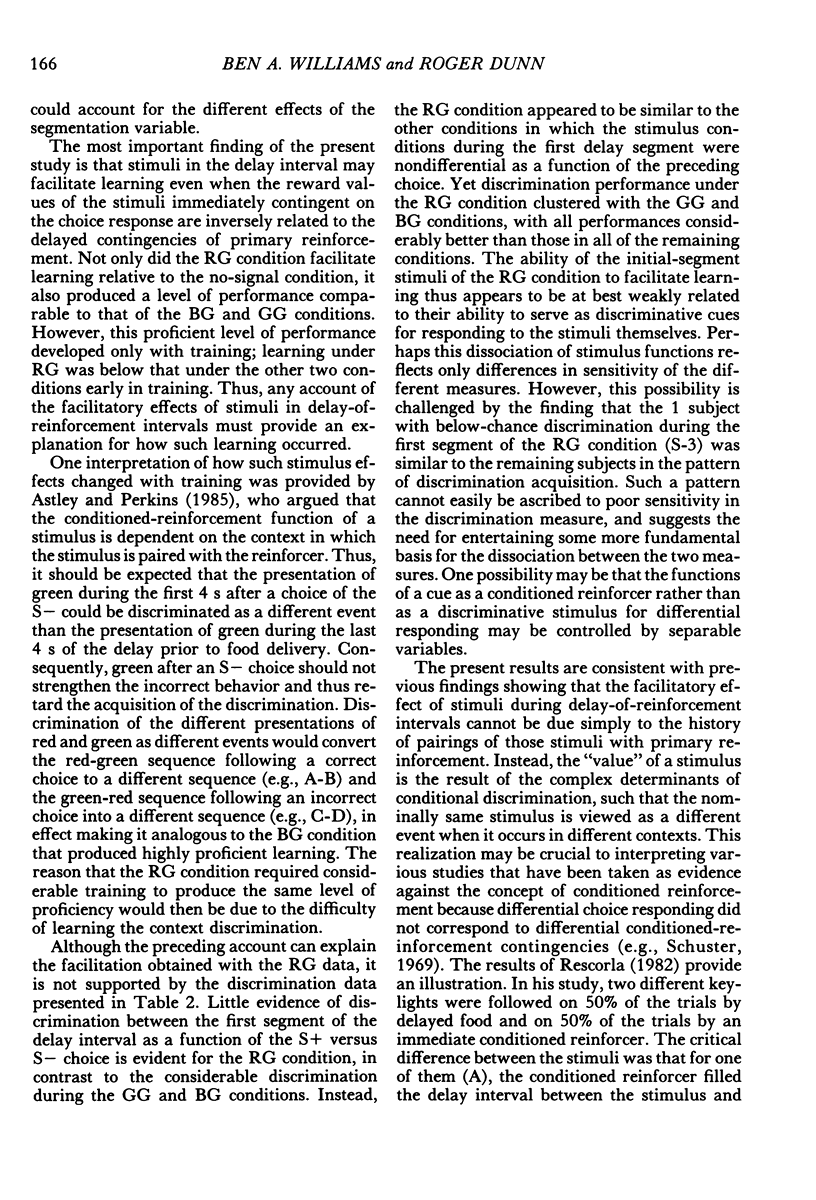
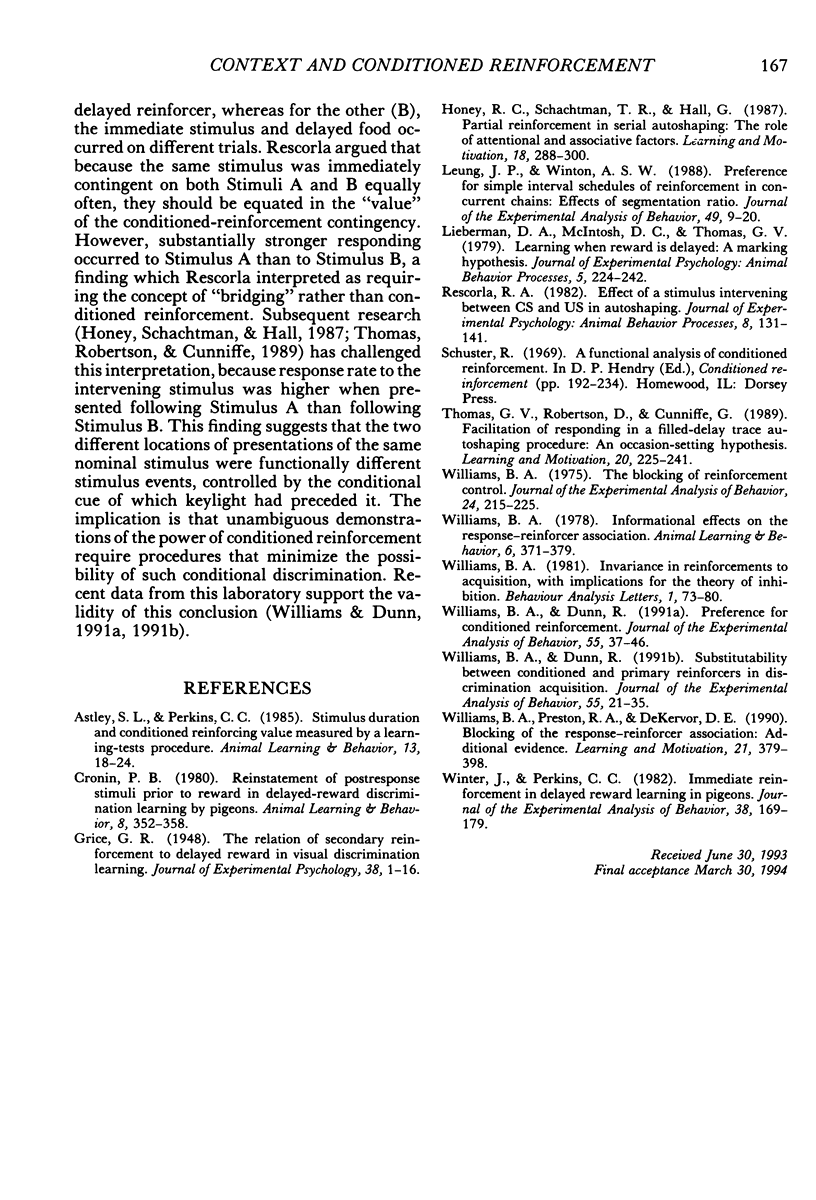
Selected References
These references are in PubMed. This may not be the complete list of references from this article.
- Leung J. P., Winton A. S. Preference for simple interval schedules of reinforcement in concurrent chains: Effects of segmentation ratio. J Exp Anal Behav. 1988 Jan;49(1):9–20. doi: 10.1901/jeab.1988.49-9. [DOI] [PMC free article] [PubMed] [Google Scholar]
- Lieberman D. A., McIntosh D. C., Thomas G. V. Learning when reward is delayed: a marking hypothesis. J Exp Psychol Anim Behav Process. 1979 Jul;5(3):224–242. doi: 10.1037//0097-7403.5.3.224. [DOI] [PubMed] [Google Scholar]
- Rescorla R. A. Effect of a stimulus intervening between CS and US in autoshaping. J Exp Psychol Anim Behav Process. 1982 Apr;8(2):131–141. [PubMed] [Google Scholar]
- Williams B. A., Dunn R. Preference for conditioned reinforcement. J Exp Anal Behav. 1991 Jan;55(1):37–46. doi: 10.1901/jeab.1991.55-37. [DOI] [PMC free article] [PubMed] [Google Scholar]
- Williams B. A., Dunn R. Substitutability between conditioned and primary reinforcers in discrimination acquisition. J Exp Anal Behav. 1991 Jan;55(1):21–35. doi: 10.1901/jeab.1991.55-21. [DOI] [PMC free article] [PubMed] [Google Scholar]
- Williams B. A. The blocking of reinforcement control. J Exp Anal Behav. 1975 Sep;24(2):215–225. doi: 10.1901/jeab.1975.24-215. [DOI] [PMC free article] [PubMed] [Google Scholar]
- Winter J., Perkins C. C. Immediate reinforcement in delayed reward learning in pigeons. J Exp Anal Behav. 1982 Sep;38(2):169–179. doi: 10.1901/jeab.1982.38-169. [DOI] [PMC free article] [PubMed] [Google Scholar]


